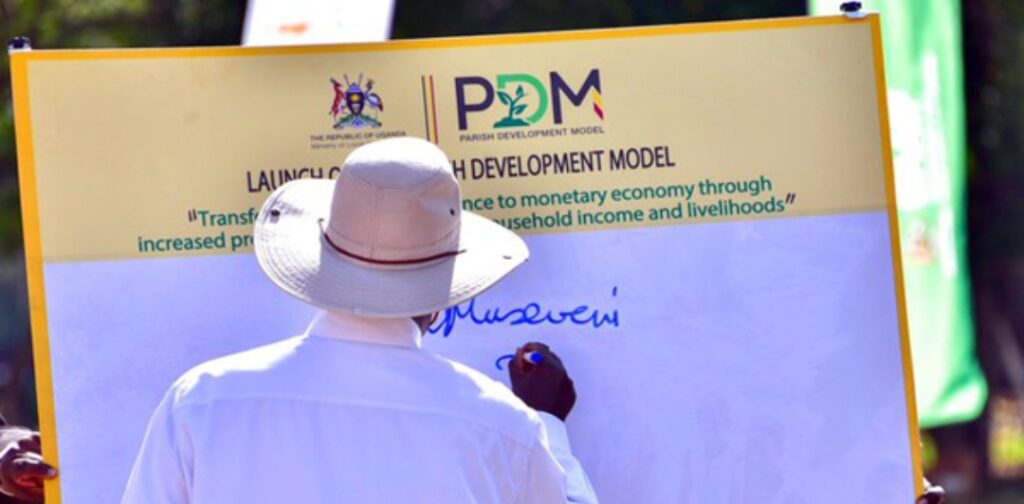By Sekaggya Seka Moses
A recent statement by presidential hopeful Robert Ssentamu Kyagulanyi, popularly known as Bobi Wine, vowing to scrap the Parish Development Model (PDM) if elected president, has sparked a national conversation about the efficacy of Uganda’s poverty-alleviation programs.

While some have dismissed Kyagulanyi’s comments as mere political rhetoric, experts and critics argue that the PDM’s rollout has been marred by familiar scandals and fundamental flaws.
Launched with great fanfare, the PDM was touted as a solution to Uganda’s persistent poverty, allocating Shs100 million to each parish to fund local enterprises.
However, barely months after its rollout, the scheme has been plagued by corruption, duplication, and poor supervision.
According to a report by the New Vision, over Shs2.16 billion was unaccounted for in just 33 districts. In some areas, such as Kitgum and Nwoya, hundreds of millions vanished before a single farmer could benefit.

Critics argue that Uganda’s anti-poverty strategy is built on a flawed assumption that poverty can be solved by simply handing out cash.
Decades of similar experiments have shown that this approach fuels dependency, waste, and patronage. Instead, experts suggest that the government should focus on building structures that support farmers, such as irrigation networks, storage facilities, cooperative support, and predictable markets.
“Money does not grow agriculture—systems do,” the critics argue. “What farmers need are irrigation networks, storage facilities, cooperative support, and predictable markets, not envelopes of cash tied to election seasons.”
Comparisons have been drawn with neighboring countries, Kenya and Tanzania, which have taken a more practical approach to agricultural development.
In Kenya, the government supports production through subsidized fertilizers, improved seeds, and county-level agricultural extension services. Tanzania, on the other hand, has built its agricultural sector on cooperatives and guaranteed markets.
Kyagulanyi’s call to scrap the PDM is gaining traction, with many arguing that it is a call for accountability, efficiency, and system reform.
As the debate continues, one thing is clear: Uganda’s poverty-alleviation programs require a fundamental overhaul.
What do you think about the PDM and its effectiveness in addressing poverty in Uganda?
Have An Advert Or Article You Want Us To Publish? Whatsapp: +256786288379 or email binocularugnews@gmail.com
